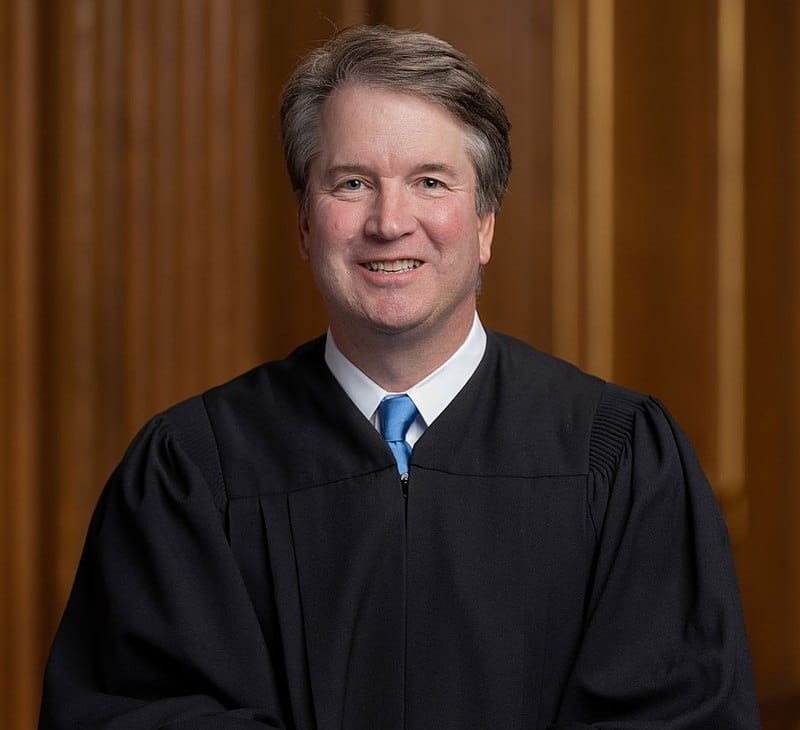Justice Brett Kavanaugh defended the Supreme Court as non-partisan in the first public remarks by any Justice since the Court recessed last month.
At a judicial conference in Minnesota on Thursday Kavanaugh said, “The court is an institution of law. It’s an institution of law not of politics, not of partisanship.”
He pointed to what he said was mixed batch of decisions during the Court’s most recent term. And in a 6-3 decision the Court did reject the “Independent State Legislature Theory” which would have given each state’s legislators sole authority over its elections, to the exclusion of its governor or its courts. In the case of Moore v Harper, three conservative Justices—Kavanaugh, Amy Coney Barrett and Chief Justice John Robert who wrote the opinion—sided with the Court’s three liberals.
But the Supreme Court, which has been a 6-3 conservative supermajority since President Trump appointed three Justices—including Kavanaugh—during his Administration, also decided several major cases this term in ways that favor conservative ideology.
Those rulings included a 6-3 ruling to bar affirmative action in admissions decisions at both for private and public colleges, a 6-3 ruling to strike down President Biden’s student loan forgiveness program, and a 6-3 ruling that a web designer can refuse to provide services for weddings to LGBTQ customers.
In that last case, 303 Creative LLC v Elenis, the evangelical Christian who brought the case, Lorie Smith, did not have a wedding web site yet and there were no LGBTQ customers asking for one. Smith preemptively sued Colorado’s civil rights commission and other state officials in 2016 out of what she said was her fear of being punished, should she refuse to serve same-sex couples with a planned wedding website.
And in the Court’s previous term the Justices had ruled 6-3 to overturn Roe v Wade, ending nearly a half-century of the Constitutional right to abortion.
According to Kavanaugh, though, the Supreme Court has “lived up, in my estimation, to deciding cases based on law and not based on partisan affiliation and partisanship.”
“We work as a group of nine,” he added, saying further, “We don’t caucus in separate rooms. We don’t meet separately. We’re not sitting on different sides of the aisle at an oral argument.”
Kavanaugh was speaking Thursday to attorneys and court personnel from the 8th Circuit, which includes Minnesota as well as Arkansas, the Dakotas, Iowa, Missouri and Nebraska.
He also noted that the Justices eat lunch together about 65 times a year, during which the rule is “you can’t talk about work.”
“It’s a good rule,” according to Kavanaugh. “It builds relationships and friendships [for] when we have tough cases.”
Regarding ethics issues that have weighed on the Court, Kavanaugh echoed Chief Justice Roberts who “respectfully decline[d]” an offer to testify at a Senate Judiciary Committee hearing on the issue.
Roberts said in May that the Justices were considering steps to “adhere to the highest standards of conduct”—though the Court has not so far adopted a formal code of ethics, as many in Congress—both Democrats and Republicans—have requested.


